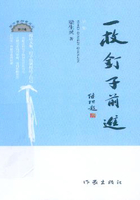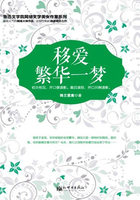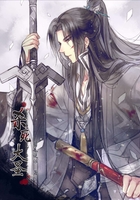CHILDREN'S STORIES ARE SUPPOSED TO BEGIN with Once upon a time. Once upon a time, I was an ordinary fifteen-year-old schoolgirl who lived with her manman and her sister in the downstairs part of a big cement house in Port-au-Prince, Haiti, which was owned by a lady named Madame Faustin. My aunt—who became my manman—raised me as her own child. I never knew any different. Manman was a servant in Mme Faustin's house, which meant she did all the cooking, the sweeping, the going-to-market, the washing, and everything else that needed to be done in that big house. Manman's work was hard, but she made a good life for my cousin and me. We laughed all the time—at Nadine's snoring, at goofy Tonton Bicha movies on our black-and-white TV, at Manman's jokes and stories from the countryside where she grew up. We'd make fun of the boys who whistled at us as we walked to school in the morning in our blue-and-white uniforms. We'd laugh in secret at Mme Faustin and her sour face and her middle-class airs, how she walked like a fat duck, and how she'd call for Manman to bring her her supper: "Yo-LETTE! Are you letting me starve tonight, Yolette?"
Life was boring and merciful then. Manman took care of everything. Looking at me and Nadine in those days, our skin soaped and rinsed and baby-powdered, our hair brushed and braided, our uniforms clean and ironed, nobody would ever know we were poor. "Your clothes are your passport," Manman always said as she made sure our socks came up to just the right place on our shins. Everything neat and in its place.
Now, for me and Nadine, that life, that world is gone.
Now it is me, Nadine, and Tonton élie. He is not someone we would live with otherwise. The situation made us live together. He is our uncle, but we're not really used to him. He doesn't have children, and he doesn't know very much about teenage girls. He's a mechanic and an electrician. He spends his days looking for work or fixing up old secondhand radios and TVs. He mostly ignores us or gets impatient with us. So in a way, it's just me and Nadine.
We live in the camp down the road from the place Tonton élie used to live, on the old soccer field that's been filled with people since January 12. Our house is not a tent (though there are tents around it—little red Coleman camping tents from the United States and huge white domes donated by one relief organization or other). But sometimes we call it "the tent." Actually, it's a house made of plywood, sheet metal, and plastic tarps. Tonton élie built it himself, with Nadine's friend Jimmy and some other guys who live around here. They nailed the tarps to the plywood, through caps from old Prestige beer bottles and old Couronne soda bottles, the caps' serrated sides down. The bottle caps help keep the nails from tearing the plastic tarps when the wind blows.
We are still afraid of sleeping under cement roofs. Everybody is—everybody in this city is afraid of that. Everybody is ready to run all the time. When a water truck goes by, when a strong wind blows, when someone jiggles their foot against the table, and sometimes when there's nothing at all but we imagine the tremor in our heads—we run. We dream about earthquakes—in our nightmares we are frozen and cannot run. This kid Kervens who lives in the tent near the mapou tree, he was under the rubble for seven hours on January 12, and now he won't sleep without his sneakers on his feet.
At least in the camp we don't have to worry about being crushed if our tents fall.
Nadine and I share a bed, as we always have, and Tonton élie makes his bed of blankets on the floor every night. He grumbles that his body is too old for this. He isn't more than thirty, though, so his body is just fine. We've got electricity whenever the government turns it on. Tonton élie set up our tent and a bunch of the tents around us with a web of wires reaching up to the electrical pole, which isn't technically legal, but the police have other things to worry about. As long as the electricity is on, we can charge our phones and watch TV.
As far as camps go, ours is medium-size, maybe fifty tents. It is not huge like the one on the Champ de Mars or La Piste, but it's not tiny and hidden on some hillside, either. That is good, says Tonton élie; it is good to be visible and near the road, because it means relief organizations will see us and give us aid. He says that's the way it's going to be now, and there's nothing shameful about it, it's not the same as begging because the country is broken, and everyone will come and help us.
Right after the earthquake, when the whole country was upside-down, we got a little bit of food from the organizations. Tonton élie had me and Nadine stand in line because the organizations said women and girls first, women and girls are more trustworthy, women and girls won't push and shove like men will. So we stood in line for hours and hours and hours, sweating in the sun with hundreds of other people, and all we got was two cans of oil and a little bit of dried rice and beans for all that trouble. Tonton élie said that was a scam; he'd never make us wait in line like that again.
A big tanker truck comes and delivers water to the camp twice a week, pumping it into huge yellow rubber bags that sit in the sun, getting hot. Even though the organizations say it's good potable water, nobody believes them. The water tastes funny, like the rubber it sits in. So we use it for washing and maybe for cooking, but definitely not for drinking. We buy little bags of treated water to drink, or if we've really got no money, we collect rainwater off the tarp and boil it.
We don't go to school anymore, even though the schools reopened this month. The president says it's time for life to start again, but Nadine and I don't have anyone to pay for school since Manman died. Tonton élie can't afford it. We don't do much of anything but wait. Living in a camp is all about waiting—for food, for water, for something to change. Of course, it is also hard. But it's hard in a drudging, dragging way. We are fighting for our survival, but the fight is tedious and slow-motion.
When we are bored, Nadine and I practice cosmetology on each other. We've been doing each other's hair since we were little girls, but now we're moving on to other things: manicures and pedicures, acrylic fingernails, makeup, eyebrows. I wasn't nervous when I let Nadine go at my eyebrows with a Gillette, because even if she made a mistake, there's no one else to see or care.
Yesterday afternoon, I tried putting acrylic nails on Nadou. I pressed them down with Krazy Glue and then cut them, just like our neighbor Jilène does when she gives manicures and pedicures under the mapou tree in the camp, but they were still long, like talons.
"It kind of hurts, Magda," Nadine told me.
"You'll get used to it, Nadou," I said.
I have a lot of nail polishes, though some of them are old now, sticky and thick or almost used up. Some of them were ours from before the earthquake, and they got dug out of the rubble. Some of them Jilène gave me. She is nice to us because we have no mother. When you put all the nail-polish bottles together, it's a lot of colors.
I tried drawing designs on Nadou's acrylic claws. Squiggles, swirls, a rainbow, flowers, a butterfly.
Nadou peered down at her thumb. "Is that a spider?"
"It's a rose."
"It sort of looks like a spider."
"It has a stem."
Some nails turned out better than others. The best nail was probably the green one with gold sparkles and a black tip.
"My fingers feel really heavy," said Nadou.
"You'll get used to it," I said again, with confidence.
"How will I wash the dishes?" she asked.
"Haven't you seen women with acrylics doing all kinds of things? They wash dishes. They wash clothes. They type. They cook. They just get used to it."
Nadine thought for a moment. "How will I wipe myself?"
She has given up on her new look after only a day, after wincing every time she accidentally hit her hands against anything and sleeping last night without moving, her fingers spread out carefully on the sheet. Now she comes to me today, saying, "Magda, we've got to get these off me."
"Really? You should try them for another day."
"I can't. I can't do anything. Unless you want to do all the cooking and all the cleaning yourself?"
"Fine."
I heat a little water in an old can over the charcoal. "You're supposed to soak your hands in warm water, and they'll pull right off," I assure her.
"Hmm!" she says, but she places her fingertips in the water.
I tug gently on the purple flower on Nadou's right index finger.
"It seems stuck," she observes.
"Just a little harder," I promise, and I yank.
"Mezanmi!" she cries. "Oh my God! No, no, no. It's not working. Don't do that again."
"It's totally getting loose. Absolutely. I just need something to help pry it off. Wait a second." I rummage through my cosmetics kit until I find a nail file and an old pair of pliers of Tonton élie's.
"Magdalie, you're going to kill me!"
"No, no, I know what I'm doing." I jam the file between the acryclic and Nadine's real nail, scraping at the glue, which comes away as a flaky white powder.
"That's my own nail coming off!" whines Nadine.
"That's the glue, dummy. I've got it under control."
Once I've gotten the nail a little loose, I grab the tip with the pliers. "It's going to slide right off now," I announce, and I twist.
"Anmwèeeeeey! Heeeeelp!" yells Nadou as she pulls her hand away from me and turns toward the wall. Actual tears glisten in her eyes.
"I guess you've just got sensitive fingertips, ti douyèt, you fragile thing," I tell her.
"You're not my friend!" Nadine mutters, wiping her eyes. "I hate you!"
"You know, I'm going to go borrow some of Tonton élie's paint thinner," I decide.
When I return, we prop open the front door of the tarp-house and tie up the lace curtain to let the fumes escape, and Nadou grudgingly places her fingertips in the bowl of thinner. ("This is your fault, Magda," she hisses.) A thick band of sunlight splashes across the inside of our home: the swept-dirt floor, the battered suitcases full of clothes, Tonton élie's half-fixed circuit boards, and a huge wall calendar, distributed by Prestige beer, featuring two women in bikinis on a beach. All the noise of the camp flows into our private world: the revving of motorcycle taxis, the bleating of goats, the squalling of babies, the sound of a woman washing her clothes and singing an evangelical hymn.
"Keep soaking them," I tell Nadou.
"Hmmph!" she says.
Eventually, after some scraping, paring, and pulling, we get the nails off, though Nadine yells and writhes as though I were pulling out her teeth instead.
"I think my nails are only half as thick as they used to be," she moans, sticking her hands under her arms protectively.
"It's really a pity I had to break the acrylics," I say, ignoring her. "Some of the designs were really beautiful."
"You'll have to do it again sometime," replies Nadine flatly.
People used to call Nadine and me the marasa, the twins, because we are so close in age and look so much alike. Not the bad kind of marasa, who hate each other from the womb and can kill each other with a curse without even trying, but the good kind, who are better and more powerful for being together. They said we looked like two drops of water. Same color skin, same eyes, same gap in our front teeth. People said our names as if they were one word strung together: Magdalie-and-Nadine or sometimes Nadine-and-Magdalie. But we aren't twins, we aren't even sisters. Nadine is my cousin. She was born in Port-au-Prince and is an only child. I was born on a mountain a day's walk from the town of Jérémie on Haiti's southwest tip. I came to live with Nadou and Manman when I was three, when my own mother, Manman's younger sister, died while giving birth to my little brother, who died, too.
My father was a good man who loved me, but he was poor. They tell me he had lots of breadfruit trees and yams, but he had no money to send me to school, and so he sent me to the capital instead. A few years after I was born, he died suddenly, with blood coming out of his mouth. Manman said it was a maladi mistik, a disease that somebody had cursed him with. And that is the story of how I became Yolette's second daughter. As long as I can remember, I called her Manman.
No one knows me like Nadine does, and no one knows Nadine like I do. In truth, we are marasa not because we're identical, because we really aren't, but because we complete each other, like two halves of a whole. I am louder than she is, and I'm not good at hiding things or keeping secrets—especially my own. Nadou is quieter and more closed up. Manman and I used to say we were the only people who knew what Nadine was thinking. Nadine liked to joke, "Bon, why do I need to talk when you talk enough for both of us, Magda? You run your mouth too much!" But it's not that she doesn't talk at all. Nadine talks to me, because I am her confidante, and her sister, and her true and forever friend.
Before the quake, we all lived at Mme Faustin's: Manman, Nadine, and me. Manman never made enough money to finish the house she had tried to build in Port-au-Prince, and Mme Faustin's was in a better neighborhood anyway. "I can't just let you girls loose on the street so men can talk to you whenever they want and have their way with you. I can't let you grow up in the slums. You understand?"
"Wi, Manman," Nadou would say, then giggle.
"Little innocent," Manman would grumble. "Ungrateful. Oh, I break my body for you, pitit!" But she'd laugh, too, and slap Nadou on the behind.
Sometimes Nadine was embarrassed by Manman's lack of education, because she was both a Catholic who went to church and a vodouyizan who got mounted by the spirits, the lwa.
"That's backwards belief, devil stuff," she would say.
"If you don't believe in vodou," I would ask her, "then why are you so afraid of it?"
Manman was serious about the spirits, but she laughed about it, too. Ask her what she believed and she'd start shaking and jiggling her whole body, making fun of people who get mounted by the lwa, even though she did, too. Manman believed in vodou, and she believed in the Church. She believed in healing plants and she believed in antibiotics. Manman could believe in everything. She had a lot of faith.
Even though Manman didn't have any formal education, she was clever. She used nearly every gourde she earned to send us both to Catholic school, because she knew it was better than the little neighborhood school. When I was little, I figured out that I liked to read and write, and the nuns would sometimes lend me extra books to read at home. I'd sit on the low wooden chair near Manman while she cooked over the charcoal fire, and I'd read stories to her, because she loved stories but she'd never learned to read. When I ran out of borrowed stories, I began to write my own for her. She said my stories were better than the radio, better, even, than the soap operas.
"Pitit!" she'd say. "Child! Where did you learn to do that?"
I wish I had memorized Manman's face, and her hands—the burns, the scars, the calluses. Her hands were always warm. She used to rub my back with palma christi oil when I was sore from carrying my backpack, and she'd sing us lullabies about the demons that hide in the dark wilderness, the things that would eat us up if given a chance. When she braided our hair, she'd scratch the teeth of the plastic comb against our scalps to loosen the dandruff, and it was the sweetest relief—I loved getting my hair braided, just for that feeling. When Nadine and I were little girls, we'd pat too much talcum on our necks, and Manman would look at us covered in white dust, and exclaim, "Oh, look how well these little fish are covered in flour! We'll fry them up tonight!"
Manman loved to laugh! I always remind myself of that, of how often she used to laugh and tell jokes. Sometimes the jokes were about sex and especially men's zozos, which embarrassed Nadine more than they embarrassed me.
"You've never seen the old tonton who sells cigarettes with his thing all swollen from—what's that disease that can make your foot swell up like an elephant's?"
"Filariasis, Manman," I'd say.
"Fil-a-ri-a-sis," she'd repeat carefully. "And his thing is swelled up as big around as his leg, poor guy … But can you imagine? He'd tear up any woman he tried to sleep with!"
Nadou would squeal, "Manman!" and hide her face in her hands.
Even though these memories make me feel closer to Manman, I can't talk about them at all with Nadine. She gets too upset. She never talks about Manman; she just cries when she thinks no one is looking. Me, I don't care who sees me cry. I cry easily, out in the open. Nadou shakes her head and tells me, "Hold on to yourself, Magda!" But I don't want the day to come when I stop crying for Manman.
Now we are surrounded by things pulled out of the rubble of our home. Some of our clothes, our photos, even our talcum powder and nail polish. Our old geography books. Nadou's High School Musical poster. My journal. It doesn't make any sense to me, still, that all these things—things that Manman once touched with her hands or wore on her body—have outlived her. She is not here, but all these things she touched are still here. And we are still here, and we must take care of each other as she took care of us.














